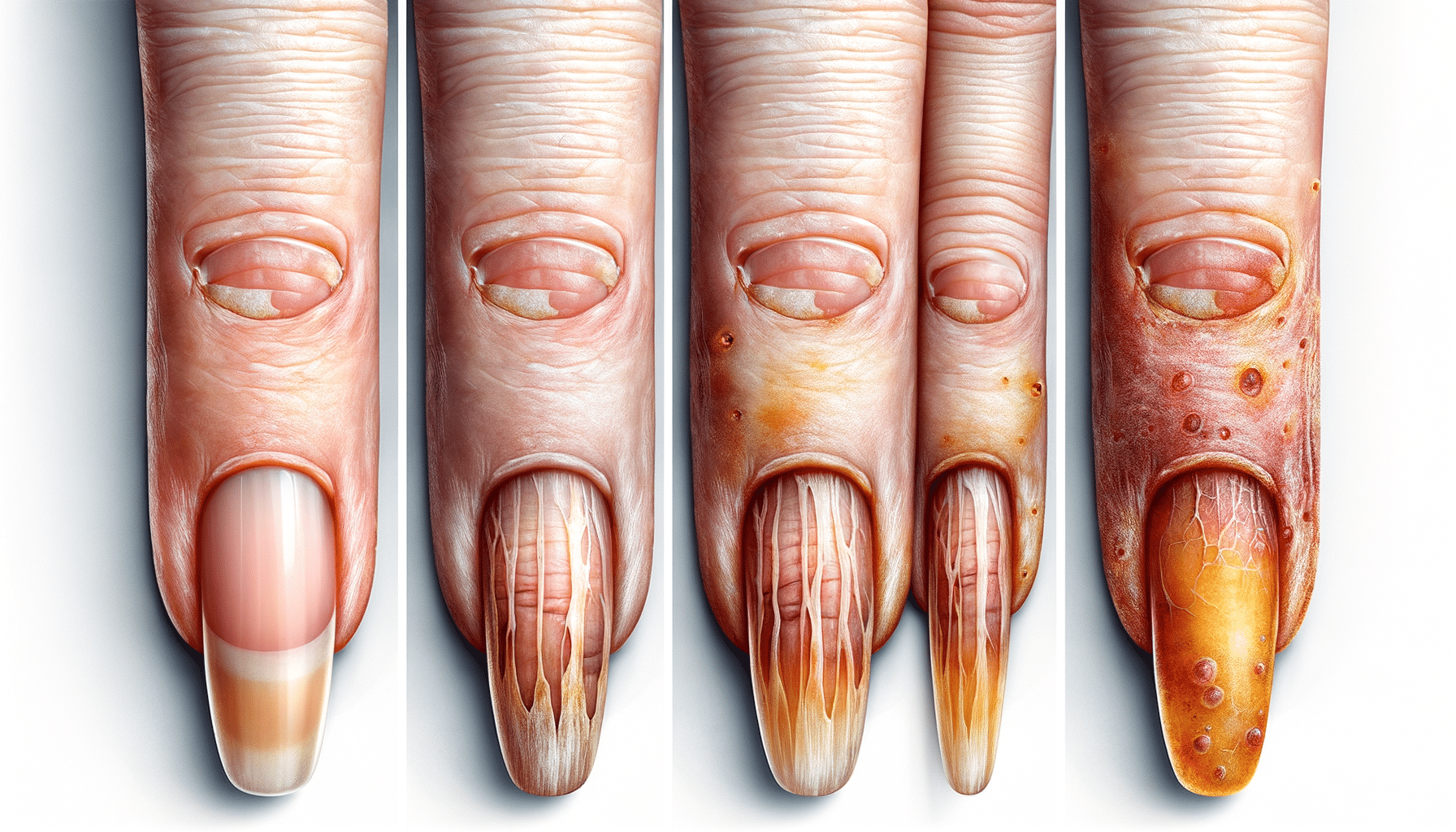
4 Nail Changes That May Be Linked to Health Conditions-When to Consult a Doctor
Understanding the Role of Nails in Health
Nails, often considered just a cosmetic feature, play a crucial role in our overall health. Composed of keratin, a type of protein, nails protect the sensitive tips of our fingers and toes. However, beyond their protective function, nails can serve as a window into our body’s health. Changes in nail color, texture, or shape can sometimes signal underlying health issues. For instance, yellow nails might indicate respiratory problems, while clubbing of the nails could be a sign of lung disease. Understanding these signs is essential for maintaining health and preventing potential complications.
Healthy nails are typically smooth, uniform in color, and free from spots or discoloration. Any deviation from this norm can be a cause for concern. Thus, keeping an eye on your nails can be as important as monitoring other health indicators like blood pressure or cholesterol levels. Regular inspection of your nails can help in early detection of potential health issues, allowing for timely intervention.
Common Nail Changes and Their Implications
Nail changes can manifest in various forms, each potentially linked to different health conditions. Some common changes include:
- Color Changes: Discoloration can range from yellowing, which might suggest fungal infections or respiratory issues, to bluish nails, often associated with oxygen deficiency.
- Texture Changes: Brittle or splitting nails can indicate nutritional deficiencies or thyroid problems.
- Shape Changes: Clubbing, where the nails curve around the fingertips, can be a sign of lung disease or cardiovascular issues.
- Thickness Changes: Thickened nails might be a result of fungal infections or psoriasis.
Each of these changes should be assessed in the context of other symptoms and overall health. Consulting a healthcare professional for persistent or concerning nail changes is advisable, as they can provide a thorough evaluation and appropriate treatment.
When to Seek Medical Advice
While minor nail changes can be harmless and temporary, certain signs warrant medical attention. If you notice persistent discoloration, significant changes in nail shape or thickness, or if the nails become painful, it’s crucial to consult a doctor. These symptoms could be indicative of systemic health issues that require professional evaluation.
Additionally, if nail changes are accompanied by other symptoms such as fatigue, weight loss, or difficulty breathing, they could be part of a broader health concern. Early diagnosis and treatment can prevent complications and improve outcomes. Therefore, being proactive about nail health is not just about aesthetics but also about safeguarding overall well-being.
Preventive Measures for Healthy Nails
Maintaining healthy nails involves a combination of good hygiene, nutrition, and lifestyle choices. Here are some tips to keep your nails in optimal condition:
- Proper Hygiene: Regularly clean and trim your nails to prevent infections. Avoid biting your nails or cutting cuticles, as these practices can introduce bacteria.
- Balanced Diet: Ensure your diet includes adequate vitamins and minerals, particularly biotin, zinc, and iron, which are essential for nail health.
- Moisturization: Keep your nails and cuticles moisturized to prevent dryness and brittleness.
- Protection: Wear gloves when using harsh chemicals or engaging in activities that could damage your nails.
By following these preventive measures, you can reduce the risk of nail problems and enhance your overall nail health.
Conclusion: The Importance of Monitoring Nail Health
Nail health is an integral part of overall well-being. By paying attention to changes in your nails, you can gain insights into your health and potentially identify issues before they become serious. Regular monitoring, combined with a healthy lifestyle, can help maintain strong and healthy nails. Remember, your nails are not just an aesthetic feature; they are a reflection of your inner health. Therefore, take the time to care for them and seek professional advice when necessary to ensure your well-being.